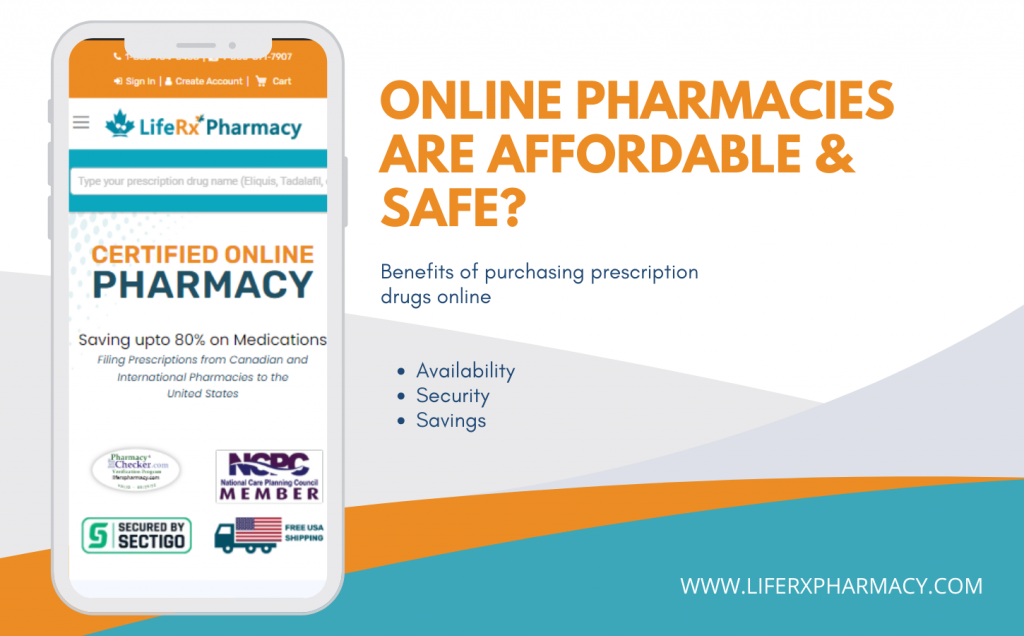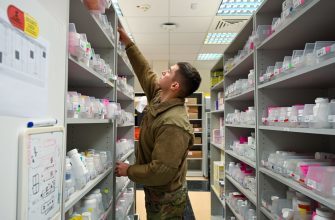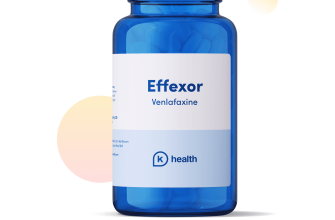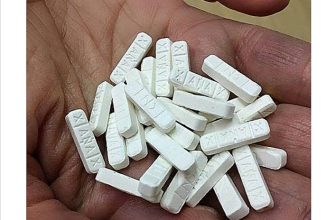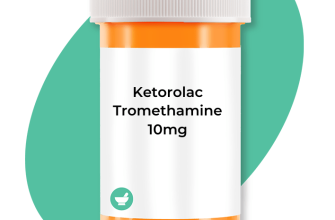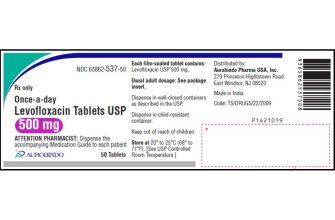Need medication delivered to your US address? Several reputable online pharmacies offer international shipping. Focus on licensed pharmacies registered with appropriate US regulatory bodies for guaranteed safety and quality. Verify their legitimacy using resources like the National Association of Boards of Pharmacy (NABP) website.
Check the pharmacy’s website for a clear shipping policy outlining delivery times, costs, and accepted payment methods. Look for transparent information on customs regulations and potential import restrictions. Understand that shipping times vary depending on location and package size, expect delays with customs processing.
Prioritize pharmacies with secure payment gateways and robust data encryption to protect your personal and financial information. Read customer reviews to gauge their shipping reliability and customer service responsiveness. Be aware that some pharmacies specialize in specific medications, so choosing the right one depends heavily on your prescription needs.
Always confirm your prescription details with the pharmacy before placing your order to avoid delays or errors. Keep your order tracking number handy to monitor your package’s journey. Contact customer support immediately if you experience any issues with your order or delivery. Remember to retain all documentation – receipts, order confirmations, and tracking information for your records.
- Pharmacies Shipping to USA
- Legality of Importing Prescription Medications
- Finding Reputable International Pharmacies
- Secure Payment Methods
- Examine Website Details
- Contact Customer Service
- Compare Prices Wisely
- Understand Shipping Policies
- Cost Comparison: US vs. International Pharmacies
- Shipping Methods and Delivery Times
- Potential Risks and Precautions
- Medication Authenticity
- Shipping and Handling
- Privacy and Security
- Regulatory Compliance
- Customer Support
- Resources and Further Information
- Understanding Prescription Drug Imports
- Finding Legitimate Online Pharmacies
- Contacting Relevant Authorities
- Additional Tips
Pharmacies Shipping to USA
Check reputable online pharmacies’ websites directly for shipping details to the USA. Many international pharmacies offer this service, but verification is key.
Confirm prescription acceptance: Not all pharmacies ship all medications. Verify if your specific prescription is eligible for international shipping before ordering.
Shipping costs vary widely. Compare prices and shipping fees across several pharmacies before making a purchase. Factor in potential customs duties or taxes.
Look for licensed pharmacies: Ensure the pharmacy holds the necessary licenses and certifications in its country of origin. This helps ensure product authenticity and safety.
Read customer reviews carefully. Positive reviews regarding reliable shipping and customer service indicate a trustworthy pharmacy. Negative reviews often highlight shipping problems.
Use secure payment methods: Opt for payment methods that offer buyer protection, such as PayPal or credit cards with fraud protection features.
Understand the return policy: Familiarize yourself with the pharmacy’s return policy in case of shipping delays, damaged goods, or incorrect orders.
Track your package. Once your order ships, use the tracking number to monitor its progress and anticipate arrival.
Contact customer support: If you encounter problems, contact the pharmacy’s customer support promptly. Document all communication for your records.
Remember to allow for sufficient processing and shipping time. International shipping often takes longer than domestic shipping.
Legality of Importing Prescription Medications
Generally, importing prescription drugs into the USA without a valid prescription from a licensed US doctor is illegal. This applies even if the medication is legal in another country.
The FDA strictly regulates medications sold within the US to ensure safety and efficacy. Importing drugs bypasses this process, creating significant risks. These risks include the potential for counterfeit medications, incorrect dosages, or medications containing harmful ingredients.
Exceptions exist for personal use in limited quantities, but these are very narrow and require specific documentation. For example, you might be allowed to import a small amount of medication for a short trip, but this depends on your specific circumstances and the medication involved. Always confirm the legality before attempting any import.
Penalties for illegal importation range from fines to criminal prosecution. The severity depends on the amount of medication and other factors.
| Scenario | Legality | Recommendation |
|---|---|---|
| Importing medication for personal use without a US prescription | Illegal | Do not import. Obtain medication through a US pharmacy or doctor. |
| Importing a small amount for a short trip, with documentation | Potentially legal (with strict limitations) | Consult the FDA or a customs broker before importing. |
| Importing large quantities of medication | Illegal | Do not import. Contact a US doctor for appropriate medication. |
For specific questions about the legality of importing a particular medication, contact the FDA directly or consult a customs broker familiar with pharmaceutical regulations. Don’t take risks; your health and safety are paramount.
Finding Reputable International Pharmacies
Verify licensing: Confirm the pharmacy holds a valid license from its country of origin. Look for easily accessible license numbers and verification methods on their website. Legitimate pharmacies will openly display this information.
Check online reviews: Don’t rely solely on the pharmacy’s own website. Search independent review sites like Trustpilot or Google Reviews. Focus on reviews discussing order fulfillment, customer service, and product authenticity. A high volume of positive reviews suggests a trustworthy operation.
Secure Payment Methods
Prioritize pharmacies accepting secure payment methods such as PayPal or credit cards with buyer protection. Avoid using wire transfers or other methods offering minimal consumer safeguards. Secure payment gateways provide an extra layer of security against fraudulent activity.
Examine Website Details
A professional-looking website with clear contact information, a physical address, and a detailed ‘About Us’ section usually indicates a more trustworthy pharmacy. Missing or vague information should raise concerns. Look for an SSL certificate (the padlock icon in the address bar) signifying data encryption during transactions.
Contact Customer Service
Test customer service responsiveness. Ask questions about shipping times, medication authenticity, and return policies. Prompt, helpful, and detailed responses suggest a commitment to customer satisfaction. Slow or evasive responses warrant caution.
Compare Prices Wisely
While lower prices can be tempting, be wary of unusually cheap medications. This may signal counterfeit or substandard products. Compare prices across multiple reputable pharmacies, but price shouldn’t be the sole deciding factor.
Understand Shipping Policies
Carefully review shipping and return policies. Verify whether the pharmacy ships to your specific location and understand their procedures for damaged or missing packages. Read the fine print to avoid unexpected costs or complications.
Cost Comparison: US vs. International Pharmacies
Generally, international pharmacies offer significantly lower prices on many medications compared to US pharmacies. This difference stems from various factors including government regulations, manufacturing costs, and insurance coverage practices. For example, a common brand-name medication costing $100 in the US might cost $30-$50 from a reputable international pharmacy.
However, remember that shipping costs and potential customs fees add to the final price. These extra charges can vary widely depending on your location, the pharmacy’s shipping methods, and the medication’s weight and value. Always factor these into your cost comparisons. Some pharmacies offer free or discounted shipping on orders above a certain amount.
Prescription requirements also differ. Some international pharmacies may require a copy of your prescription, while others may not. Verify the pharmacy’s requirements before ordering. Never order controlled substances internationally without proper authorization, as this could have serious legal consequences.
To get the best deal, compare prices from several reputable international pharmacies. Websites that aggregate medication prices can be helpful tools for this. Carefully review each pharmacy’s legitimacy and customer reviews before making a purchase. Confirm the medication’s authenticity and source, paying attention to the manufacturer and expiration date. Prioritize safety and legality when comparing costs.
Ultimately, the savings potential from using international pharmacies is substantial for many medications, but thorough research and careful consideration of extra fees and regulations are necessary to ensure a safe and cost-effective purchase.
Shipping Methods and Delivery Times
Choose from USPS, FedEx, or UPS for delivery. USPS offers First-Class and Priority Mail, providing affordable options with varying delivery speeds. Expect First-Class to take 2-5 business days, while Priority Mail typically delivers within 1-3 business days. FedEx and UPS provide similar expedited options, often delivering packages within 1-2 business days, depending on location and service selected. Tracking numbers are always included, allowing you to monitor your package’s progress.
Faster shipping means higher costs. Consider your budget and desired delivery timeframe when selecting a shipping method. While expedited services are more expensive, they offer significantly faster delivery for time-sensitive orders. Standard shipping is a budget-friendly choice for less urgent needs.
Delivery times are estimates, not guarantees. Unexpected delays can occur due to weather, high order volume, or unforeseen circumstances. Allow extra time, especially during peak seasons like holidays. Contact customer service if you have concerns about your order’s arrival.
For international orders, delivery times vary greatly depending on the destination country and customs processing. Additional fees may apply. Check the pharmacy’s shipping policy for details on international orders.
Pharmacy location also affects delivery time. Pharmacies in densely populated areas usually have faster processing times. Orders from pharmacies further from major shipping hubs may take slightly longer to ship.
Potential Risks and Precautions
Always verify the pharmacy’s license and registration with your state board of pharmacy before ordering. This simple step significantly reduces the risk of receiving counterfeit or substandard medications.
Medication Authenticity
- Check for discrepancies between the medication and its packaging. Look for inconsistencies in printing, unusual seals, or damaged packaging.
- Compare the medication’s appearance to images online from reputable sources. Note variations in color, size, or markings.
- Consult your physician or pharmacist if you have any doubts about a medication’s authenticity. They can help verify its legitimacy.
Shipping and Handling
Choose pharmacies with transparent shipping policies and reliable tracking options. You should receive regular updates on your order’s location.
- Opt for shipping methods that provide temperature control for medications requiring specific storage conditions. Improper storage can compromise medication efficacy.
- Inspect the package upon arrival. Report any damage to the shipping container immediately to the pharmacy and the shipping carrier.
- Understand the pharmacy’s return policy in case of damage or incorrect orders. A well-defined policy protects your rights as a customer.
Privacy and Security
- Ensure the pharmacy uses secure payment gateways (HTTPS) and follows data protection regulations like HIPAA if applicable. Your personal and financial information needs protection.
- Review the pharmacy’s privacy policy to understand how they handle your data. Look for clear explanations of their data collection and usage practices.
Regulatory Compliance
Confirm that the pharmacy is compliant with all applicable US federal and state regulations governing the distribution of pharmaceuticals. This includes proper licensing and adherence to prescription drug laws.
Customer Support
Choose a pharmacy with readily available and responsive customer support. Easy access to help is crucial for resolving any issues that may arise.
Resources and Further Information
Need more help navigating US pharmacy regulations? Check the FDA website directly: https://www.fda.gov/. This is your primary source for accurate, up-to-date information.
Understanding Prescription Drug Imports
For detailed information on importing prescription drugs legally, consult the FDA’s guidance documents on their website. Look for specific information on personal importation and any permitted exceptions.
- Pay close attention to permitted quantities. Exceeding these limits can lead to legal issues.
- Understand the documentation required for legitimate imports.
- Familiarize yourself with any specific requirements for controlled substances.
Finding Legitimate Online Pharmacies
Be cautious when using online pharmacies. Verify the legitimacy of any website before ordering medication. This helps protect your health and safety.
- Check the pharmacy’s license with your state board of pharmacy.
- Verify that the pharmacist is licensed to practice in a recognized jurisdiction.
- Look for secure payment gateways (HTTPS) and robust privacy policies.
- Read online reviews from verified customers – but treat them critically. Look for patterns, not isolated incidents.
Contacting Relevant Authorities
If you have questions or concerns, contact these resources:
- Your physician: They can provide advice on medication and safe sourcing.
- Your state board of pharmacy: They can offer guidance on legal pharmacies operating in your state.
- The FDA: Use their contact information provided on their website to address questions about import regulations.
Additional Tips
Always consult your doctor before starting any new medication, even those obtained from a pharmacy in the USA. This ensures safe and effective treatment.

